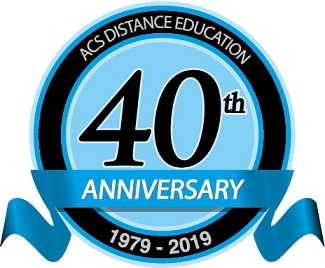There has never been a greater demand for knowledgeable, capable gardeners and horticulturists; but at the same time many of the courses offered by other colleges have been downgraded over past decades.
Consider
- Since the 1990's many horticulture courses have become shorter with less student contact hours
- Science is being taught less in many horticulture courses than it once was
- The number of plants covered by a certificate or diploma course is often less than it once was.
Ask some graduates
Talk to someone who studied horticulture 40 years ago, then talk to someone who is studying now; and compare. Ass both - how many plants you learned to identify, how many hours of lectures were in your course, what did you study? Compare.
Our courses are longer and may be more challenging than some you might do today, but learning is a journey that takes time.
You can appear to learn more by doing an easier course, but it is what you actually learn that makes the difference: not what you appear to learn.
Horticultural education has certainly become a real problem, and an extremely complex problem; not only in Australia but also in England (I operate a school there), in the USA and at least some other countries (I am aware of several countries where I have affiliates running our courses under license).

There are a lot of myths around the problem. While everyone laments the decline in quality of horticultural education, and numbers of students entering the profession; all too often it is assumed that the causes are relatively simplistic such as lack of funding or poor awareness of the opportunities in horticulture. In reality, the problems faced by horticultural education extend well beyond just horticulture. Universities and vocational colleges are in trouble everywhere, and the one major failing (if there is only one), is that the world is that mainstream education systems were designed, and are operating with systems largely established for the 20th century, but in the climate of the 20th century.
There are lots of issues to consider and act on but by the time we identify a problem, then formulate, plan, fund and approve a solution; the problem we identified has become a very different or more complicated problem. Consider; hypothetically we take 3+ years to identify and respond to a problem using the current management structures.
Some issues I see arising from all of this are:
- more progressive and enlightened horticulture educators are de-motivated to continue working in mainstream education (creating a shortage of the best horticulture teachers)
- regulation may improve quality control, but it also slows the ability of educators to respond quickly to needs
- parents, grandparents and teachers are commonly advising younger generations on the basis of their own career experience. Teens are told that getting a degree is the most secure way of building a career; but this advice is coming from people who are thinking about their 20th century experience; and are oblivious to more recent research that shows far less of a parallel between qualifications and career success.
- many educators are either ignorant of recent developments in understanding the psychology of learning; or are simply not applying modern educational psychology to what they do
- we cannot base what we do today on what we observed a year or two ago - unfortunately the world is just changing too fast.
There are many other considerations - but from what I see, the solutions to horticultural education must start with recognising the importance of commencing a career with generic skills that do not change and finding new ways to ensure all entrants to the industry have all of those generic skills as a foundation. Qualifications do not matter so much - research shows us that is the way of the developed world in 2018; but broad foundation knowledge does.
Next, we need to ensure teachers, parents and grandparents who influence children; have a more realistic understanding of the opportunities and pathways to success in horticulture.
Finally, we need opportunities and encouragement that provide for growth in and currency with knowledge of horticulture across the entire career.
I believe the professional development programs (CPD) are doing an extremely commendable job of achieving that third goal.
ACS is focused on helping you learn the foundation for career transition; or to start a career; then more specialist training courses for CPD.